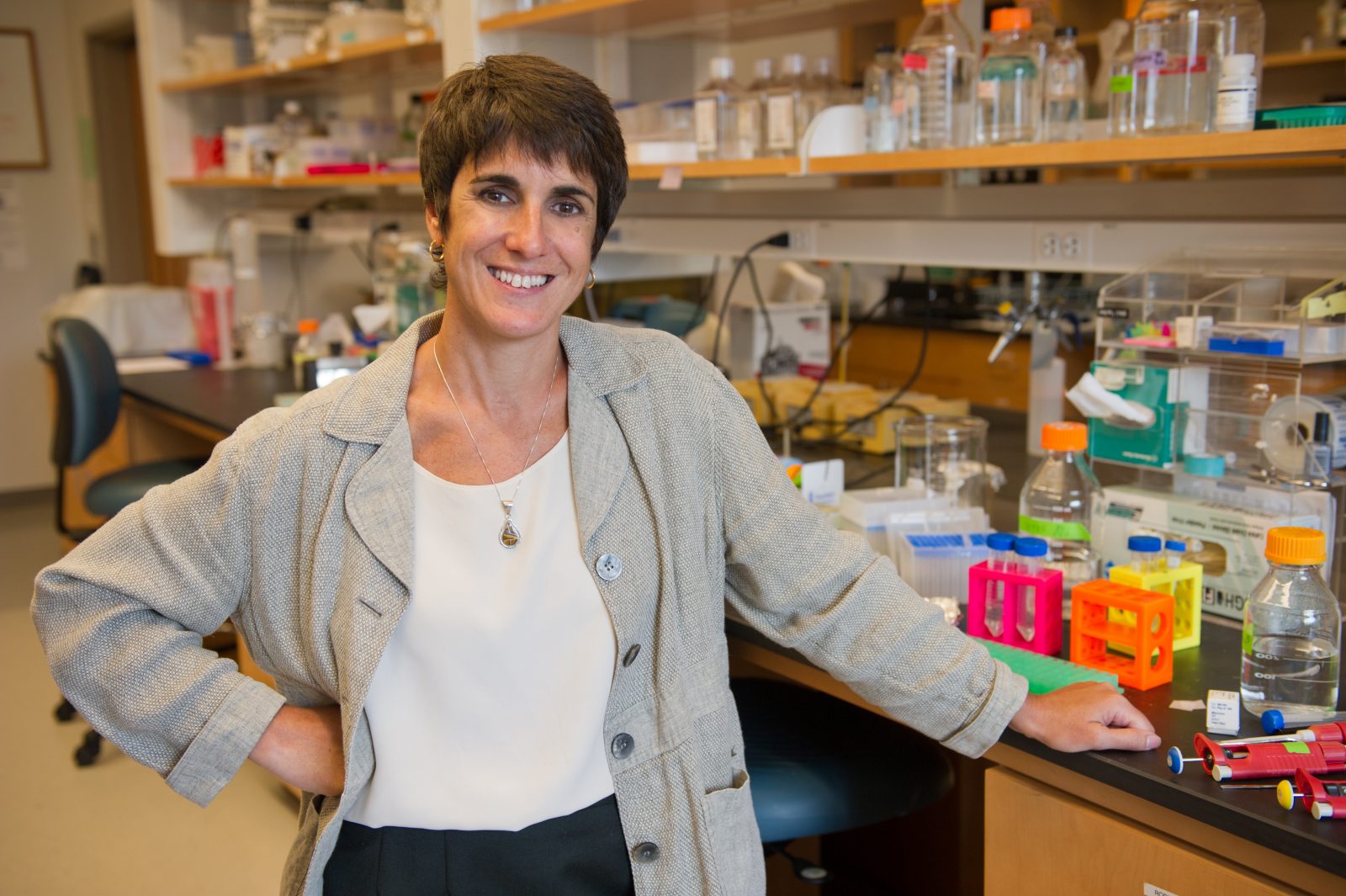Sandra Hewett, the Beverly Petterson Bishop Professor of Neuroscience at Syracuse University, is a 2020 recipient of the Landis Mentorship Award. Given annually by the National Institute of Neurological Disorders and Stroke (NINDS), the award supports researchers’ efforts in advancing the careers of students and postdoctoral fellows in their laboratories. Hewett will receive $100,000 in the form of a supplement to an existing NINDS grant.

“One aspect of mentoring is to foster the professional development of mentees on how to be productive researchers,” says Hewett, also a professor of biology and the executive director of neuroscience studies in the College of Arts and Sciences. “Their success toward pursuing these ideas, under my tutelage, allows us to advance the scientific enterprise and work toward the improvement of human health.”
Former student Sheila Shahidzadeh Sears G’18 spearheaded Hewett’s nomination because of her tireless dedication and hands-on approach to mentoring. “Professor Hewett spends hours working directly with her students, consistently encouraging them to engage in rigorous science,” says Sears, a postdoc at the University of California, San Francisco. “She has played a key role in inspiring current and future scientists at Syracuse University and beyond.”
Hewett came to the University from UConn Health in 2011 and has since cemented her reputation as a fierce and early advocate of neuroscience study. Her research is twofold: the molecular and biochemical mechanisms underlying cell death and protection as well as the physiological function of the central nervous system, with emphasis on neural interactions and dynamics. She is widely known for her research into the role of astrocytes—specialized star-shaped cells in the central nervous system—in brain disorders.
Hewett’s mentoring extends beyond her laboratory to include junior faculty such as Jessica MacDonald and Carlos Castañeda. “She often puts helping us—whether editing grant proposals, answering panicked questions or providing sage career advice—above her own work and downtime,” says MacDonald, assistant professor of biology in the College of Arts and Sciences. “Her dedication to mentoring scientists at all stages of their careers is inspiring.”
MacDonald recalls asking Hewett to review her first National Institutes of Health grant proposal. “She looked me in the eye and asked me whether I wanted her honest feedback or wanted her to tell me it was great and to point out any typos,” says the Harvard-trained neuroscientist. “I chose the former, and now I am a better grant writer for it.”
Castañeda concurs, adding that Hewett helped him get hired by the University in 2014. By then, the College of Arts and Sciences’ neuroscience program was only three years old, and Castañeda, fresh from a postdoctoral fellowship with the University of Maryland at College Park, had some “awesome scientific conversations” with Hewett that cinched his decision.
“Her passion and excitement for neuroscience aligned well with mine, as I started to develop projects focusing on proteins associated with amyotrophic lateral sclerosis, a neurological disorder,” says Castañeda, a biochemist and biophysicist at Syracuse University and at SUNY Upstate Medical University. “She has helped me extensively during the grant-writing process, even introducing me to an investigator at St. Jude’s Children’s Research Hospital, with whom my lab has collaborated on a project [whose results were] recently published.”
Hewett takes the praise in stride, noting that mentoring is mutually beneficial. More than supervising lab projects, teaching sound experimental design and practicing good grantsmanship, mentoring is about assisting people with short- and long-term goals, she says. “Their success is my reward.”
Committed to creating formative research opportunities, Hewett is especially passionate about making STEM (science, technology, engineering and mathematics) education more welcoming. Thus, she takes an individualized approach to mentoring.
“Diversity is the end-goal, and inclusion is the means by which to get there,” Hewett says. “Good mentorship can help people realize and envision their self-identity as STEM scholars. Moreover, the performance of undergraduate research strongly correlates with increased rates of graduate education for all students, especially those underrepresented in science. Mentoring is responsible for that.”
The Landis Award is named for Story Landis, a neurobiologist and former director of NINDS who has provided guidance to researchers at all stages of their careers.
“Effective mentors are critical for inspiring and guiding current and future brain scientists toward highly successful careers. This award demonstrates the significance that NINDS places on mentorship and recognizes the awardees for their dedication to motivating and encouraging students and early-career researchers,” says Stephen Korn, director of NINDS’ Office of Training and Workforce Development.
NINDS is part of National Institutes of Health, one of the world’s foremost medical research centers.
—by Rob Enslin
